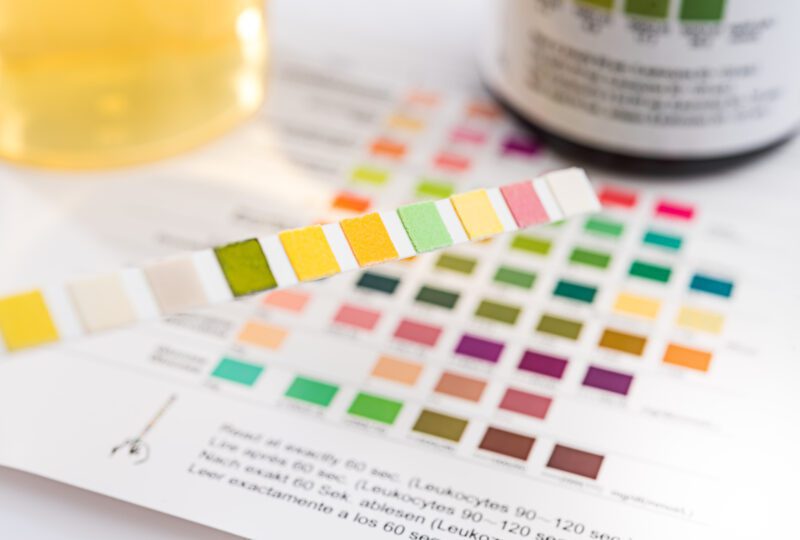What Kind of Drug Test Does Family Court Use?
Family court often requires parents involved in custody disputes to undergo drug testing. The type of drug test used depends on the court’s policies and suspected drug use. Understanding how family courts approach drug testing can help prepare parents for these proceedings.
Reasons for Drug Testing in Family Court
There are several reasons why a family court may order a parent to take a drug test:
Determining Parental Fitness
A major role of family court is to determine what custody arrangements are in a child’s best interests. If there are concerns about a parent’s drug use impacting their ability to care for a child, the court may use drug testing to gather evidence on fitness.
Investigating Abuse/Neglect Claims
Drug testing may be used when there are allegations a parent’s substance abuse has resulted in child abuse or neglect. A positive drug test can support these accusations.
Monitoring Compliance with Court Orders
Parents may be required to undergo periodic drug testing to show they are complying with court orders to remain sober and participate in treatment programs.
Assessing Risks to Child Safety
Even if there are no direct allegations of harm, a parent’s drug use can pose risks to a child’s safety and well-being. Testing can identify if such risks are present.
Common Types of Drug Tests Used
There are a few main types of drug tests that family courts use:
Urine Tests
Urine drug screening is the most common type used. It can detect many illegal, prescription, and over-the-counter drugs or their metabolites. Urine tests are relatively inexpensive and easy to administer.
Hair Testing
Hair follicle drug testing analyzes for drug metabolites in the hair shaft. It can detect substance use over a longer period (typically 90 days) compared to urine testing. Hair tests are more expensive.
Saliva/Oral Fluid Testing
Saliva or oral fluid testing identifies drug presence through a swab of the mouth. It is better at detecting very recent drug use compared to urine or hair testing.
Blood Testing
Testing blood for drugs provides information on both recent use and long-term use. However, blood tests are invasive and more costly. Courts rarely use them.
Sweat Patch Testing
Sweat patches worn for 1-2 weeks can provide continuous drug testing. They test for a wide range of drugs as compounds diffuse into the patch. But sweat testing is less common in family courts.
What Drugs Are Tested For?
Family courts typically test for all major illegal drugs of abuse and commonly misused prescription medications. This includes:
Marijuana
Tetrahydrocannabinol (THC) and its metabolites are included in standard drug test panels. Marijuana can be detected for weeks after use in urine and hair.
Cocaine
Cocaine and crack cocaine use is tested for through the metabolite benzoylecgonine. Detection windows are 1-3 days in urine.
Methamphetamine
Methamphetamine is included in amphetamine tests. It is detectable for 1-3 days in urine but longer with hair testing.
Opioids
Opioid and opiate tests identify drugs like heroin, morphine, hydrocodone, oxycodone, and codeine. Detection times vary by specific drug.
Benzodiazepines
Prescribed benzodiazepines like Xanax, Klonopin, Valium and Ativan are commonly tested for due to their abuse potential.
Factors Impacting Testing Policies
The court considers several factors in shaping testing approaches:
Suspected Drugs of Abuse
Testing policies account for drugs a parent is suspected of abusing based on concerning behaviors, drug possession charges, addiction history, etc.
Testing Budget and Resources
Costs, staffing needs, and convenience influence what types of tests and frequency of repeat testing is viable for the court.
Parental Rights Vs. Child Welfare
Courts balance gathering needed evidence against excessively infringing on parental rights with invasive or overly frequent testing protocols.
State Laws and Regulations
Individual state statutes and regulations shape what drug testing family courts may mandate under what circumstances.
Past Issues with Deception
If issues like adulterated samples arise, courts may require more tamper-proof testing methods.
Interpreting Test Results
Several factors affect how family courts interpret and act upon drug test results:
Testing Limitations
Courts consider limitations like false positives/negatives and how detection windows impact what substance use can be inferred.
Pattern of Use Vs. Isolated Incident
Repeated positive tests raise more serious concerns than a single positive in an otherwise compliant parent.
Honest Disclosure and Accountability
Admitting to a relapse and taking accountability can mitigate concerns compared to deception.
Participation in Treatment
Seeking treatment helps demonstrate a parent wishes to achieve lasting sobriety.
Changes to Behavior and Parenting
More weight is given to how current substance use impacts parental capacity versus past use before having custody.
Potential Consequences of Positive Drug Tests
Some potential repercussions parents can face for positive drug test results:
Reduced or Supervised Visitation/Parenting Time
Visits with children may be restricted or required to be supervised by a sober family member.
Required Counseling or Treatment
Parents may have to enroll in substance abuse counseling or a formal outpatient or inpatient treatment program.
Child Protective Services Investigation
CPS may be informed to assess child safety risks and potentially remove children into protective custody.
Loss of Child Custody
Repeated failed tests or evidence risks to children may result in temporary or permanent loss of physical and legal custody.
Contempt of Court
Violating court orders to remain sober can result in contempt charges punishable by fines or jail time.
Termination of Parental Rights
In severe cases of repeat substanced abuse despite interventions, termination of parental rights may occur.
Avoiding a Positive Drug Test
If drug use presents safety risks, stopping is ideal. But some parents attempt to avoid positive drug tests through:
Diluting Urine
Drinking extra fluids can dilute urine to mask detection of some drugs. Courts may reject diluted samples.
Adulterants
Adding other substances to urine like bleach, vinegar, salt, or glutaraldehyde can aim to invalidate results. But labs often detect these.
Substitution
Bringing in clean urine from someone else or synthetic urine to substitute drug-free urine. This is often detectable.
Detoxifying Products
Using herbals, teas, or other products to try to rapidly flush out drug metabolites. These are rarely effective.
Hair Treatments
Attempting to remove drug compounds from hair through stripping, bleaching, or chemical treatments. But these are visible.
Beating Oral Fluid Tests
Using deceitful techniques like putting objects in the mouth to adulterate oral fluid sample. Obvious to testers.
Avoiding a positive drug test through deceptive techniques is unwise and unethical when child safety is at stake. The best approach is honest disclosure and seeking substance abuse treatment if needed.
Conclusion
Family courts have a duty to use drug testing judiciously as part of determining custody arrangements that promote child welfare. Understanding common testing approaches, what substances can be detected, typical policies, and potential consequences allows parents to prepare for this process. But deception through adulterating samples or other means runs counter to a parent’s responsibilities. When needed, seeking substance abuse treatment demonstrates a dedication to achieving sobriety. With open communication and accountability, parents can work productively with the court so that drug testing has a constructive role in serving children’s best interests.
FAQs
What is the most common drug test used in family court?
Urine drug screening is the most widely used test in family courts. Urine tests are affordable and detect a broad range of illegal, prescription, and over-the-counter drugs.
How far back can a hair follicle drug test detect substance use?
Hair follicle tests can detect drug use going back approximately 90 days before the sample is collected, providing a longer detection window than urine testing.
What happens if a parent refuses to take a court-ordered drug test?
Refusing to test can result in contempt of court charges and penalties such as fines or jail time. Courts may also inference drug use from refusal to test.
Can prescription drugs cause a positive test result?
Yes, many legally prescribed medications like opioids, benzodiazepines, and stimulants can lead to positive results on standard court-ordered drug tests.
How long do drugs stay in your system for urine testing?
Detection windows vary by drug but are typically 1-3 days for most illegal drugs. Marijuana metabolites can be detected for weeks after last use.







